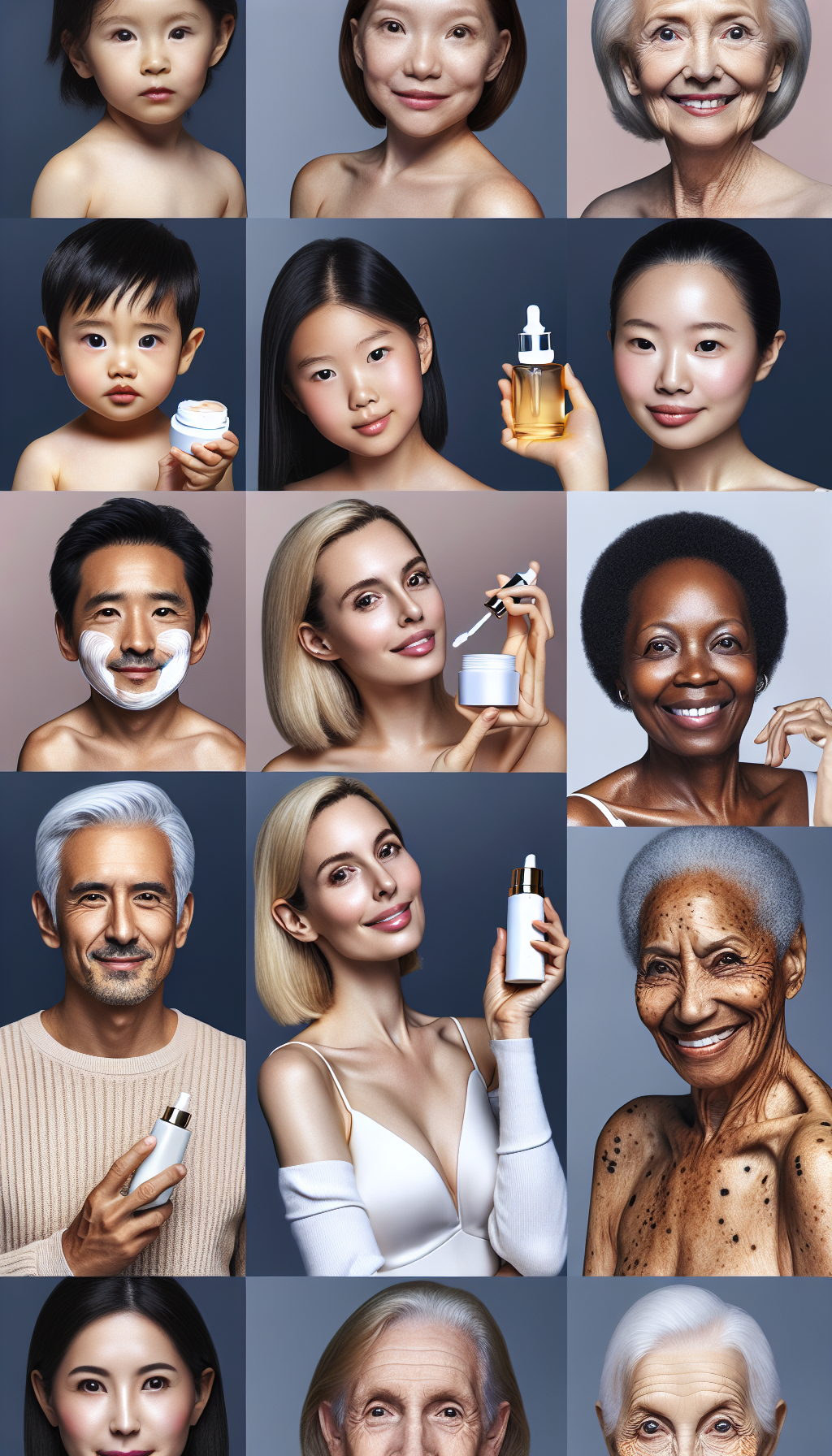Hormones are powerful chemical messengers in our body that affect our skin’s health and appearance in profound ways. Understanding the link between hormonal fluctuations and skin care is crucial for maintaining a radiant and healthy complexion throughout various life stages. This article will delve into the intricacies of hormonal impacts on the skin, and offer comprehensive strategies to adapt your skin care routine accordingly.
The Science of Hormones and Skin Health
The skin is the largest organ of the body and an expressive canvas of our internal health, including hormonal balance. Hormones like estrogen, testosterone, and cortisol play significant roles in skin health, influencing everything from oil production to elasticity and collagen synthesis.
Estrogen and Skin Elasticity
Estrogen aids in maintaining skin thickness, moisture, and elasticity. It promotes hyaluronic acid production, which is vital for skin hydration, and stimulates collagen, which is essential for skin strength and elasticity. During periods of low estrogen, such as menopause, skin may become dryer, thinner, and more prone to wrinkles.
Testosterone and Oil Production
Testosterone can increase sebum production. While sebum is necessary for protecting and moisturizing the skin, excessive sebum can lead to oily skin and acne. Hormonal fluctuations, such as those experienced during menstruation, puberty, or stress, can lead to increased testosterone levels and subsequent skin issues.
Cortisol and Stress
Cortisol, the stress hormone, can break down collagen and elastin, leading to skin aging and lack of firmness. Furthermore, elevated cortisol levels can exacerbate conditions like acne, eczema, or rosacea.
For deeper insights into how your skin functions and reacts to hormonal changes, consider exploring Avix Health’s comprehensive guide on Skin Health.
Adapting Skin Care to Hormonal Changes
Recognizing the signs of hormonal shifts is the first step in tailoring your skin care routine. Here’s how to address common hormonal skin concerns:
Managing Dryness and Loss of Elasticity
During times when estrogen levels dip, such as during the menstrual cycle or menopause, incorporate products that boost hydration and collagen production. Look for ingredients such as hyaluronic acid, peptides, and retinoids. A study published in the Journal of Cosmetic Dermatology highlights the efficacy of topical retinoids in enhancing collagen production and improving skin texture.
Controlling Oil Production and Acne
If you’re experiencing increased oiliness or acne, products containing salicylic acid or benzoyl peroxide can be beneficial. They help to unclog pores and reduce inflammation. For severe cases, dermatological treatments like retinoids or hormonal therapy may be recommended. The American Academy of Dermatology provides guidelines on the effective use of these ingredients for managing acne.
Calming Inflammation and Redness
For skin affected by cortisol-induced inflammation, antioxidants and anti-inflammatory agents can work wonders. Niacinamide, green tea extract, and vitamin C are potent ingredients that can help soothe and repair stressed skin. The National Center for Biotechnology Information offers resources on the anti-inflammatory properties of these compounds.
Incorporating these strategies into your routine is not just about applying the right products; it’s also about timing. Syncing your skin care routine with your hormonal cycle can significantly enhance skin health. For instance, using more nourishing creams during your menstrual cycle when estrogen levels are low or focusing on calming ingredients if you’re undergoing stress.
Lifestyle Factors and Hormonal Skin Health
Beyond topical treatments, lifestyle choices play a pivotal role in managing hormonal skin changes. Certain habits can exacerbate hormonal fluctuations and skin issues, but strategic changes can mitigate these effects.
Diet and Skin Clarity
Incorporating a diet rich in antioxidants can support skin health by combating oxidative stress, which can be exacerbated by hormonal imbalances. Foods like berries, nuts, and leafy greens are excellent choices. For a focused read on how dietary choices impact your skin, check out the article on Dietary Antioxidants and Their Role in Skin Appearance.
Hydration and Sebum Balance
Drinking ample water is essential for maintaining skin hydration and assisting in the regulation of sebum production. The relationship between hydration and skin oil production is complex, and understanding it can be key to balancing oily skin. Learn more about this connection from Avix Health’s article on The Relationship Between Hydration and Skin Oil Production.
Stress Management
High stress levels can trigger cortisol release, thus adopting stress-reducing practices like yoga, meditation, or regular exercise can help keep cortisol in check. Avix Health provides a thorough guide on Managing Stress for Better Skin Health, which can be a valuable resource for those looking to improve their skin through stress management.
Tailored Skin Care Throughout Life Stages
As we move through different stages of life, our hormonal profile changes, necessitating adjustments in our skin care approach.
Puberty and Adolescence
The surge in hormones during puberty often leads to increased oiliness and acne. Adapting a skin care routine that includes gentle cleansing and oil-free moisturizers can help manage breakouts.
Pregnancy and Postpartum
Pregnancy can cause hormonal swings leading to conditions like melasma or the ‘mask of pregnancy.’ Using sun protection and products with ingredients like azelaic acid can help address these issues.
Menopause
During menopause, reduced estrogen levels can lead to dryness and loss of firmness. Rich moisturizers and products designed to support collagen production can be beneficial during this stage.
Conclusion
Hormonal fluctuations are a natural part of life, but by understanding their effects on our skin and adapting our skin care routines accordingly, we can maintain a healthy and radiant complexion. Remember, skin care is deeply personal, and what works for one person may not work for another. Listening to your body and consulting with a dermatologist can ensure that your skin care strategy is as effective and tailored to your needs as possible.
For more personalized advice on skin care, consider exploring Avix Health’s resources on Personalizing Skin Care Products for Unique Skin Types.



